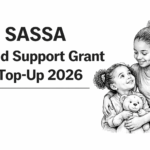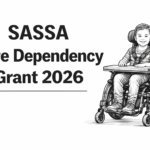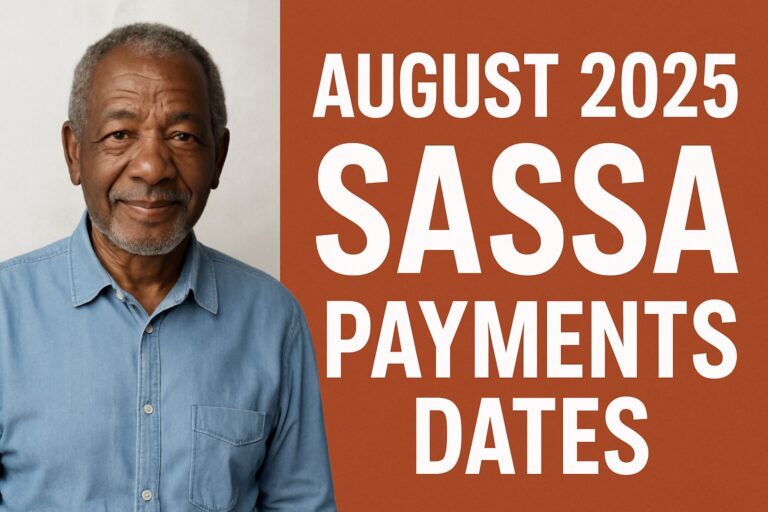South Africa’s Social Security Agency (SASSA) grant beneficiaries rely heavily on their SASSA Gold Cards to access critical social grants, making any changes to this system a matter of urgent public interest. Recent announcements by Postbank regarding the phasing out of the SASSA Gold Card in favor of a new Postbank Black Card have sparked confusion, frustration, and skepticism among millions of beneficiaries. This article unpacks the evolving deadlines, communication gaps, and practical hurdles in this transition—and why stakeholders must act swiftly to safeguard vulnerable users.
Read Also : SASSA Gold Card Replacement – New Date Set
The Shifting Deadlines: A Timeline of Uncertainty
Postbank first signaled the discontinuation of the SASSA Gold Card in late 2023, with initial reports suggesting cards would cease functioning after 2025. However, deadlines have since shifted multiple times:
- Early 2024: Announcements hinted at a March 31, 2025, cutoff.
- Recent Updates: Postbank’s Facebook page now states a February 28, 2025, deadline for card replacements.
Despite these updates, SASSA has not issued an official statement confirming the transition, leaving beneficiaries questioning the legitimacy and urgency of the move. This lack of coordination between Postbank and SASSA has fueled distrust, particularly among those who recently received Gold Cards valid until 2027 or 2028.
Why the Skepticism? Key Concerns from Beneficiaries
- Conflicting Expiry Dates
Many beneficiaries who received new Gold Cards in 2023 or 2024 are puzzled by the replacement mandate, as their cards display expiry dates as late as 2027 or 2028. Postbank has yet to clarify whether the Black Card transition applies to all Gold Card holders or only those with expiring cards. - Accessibility of Replacement Centers
While Postbank has designated retail partners (e.g., Checkers, Pick n Pay, Boxer) as replacement hubs, these locations are inaccessible to rural or mobility-impaired beneficiaries. Older adults and people with disabilities face significant barriers traveling long distances, particularly without subsidized transport. - Short Notice for a Massive Undertaking
Replacing millions of cards by February 2025—a window of less than 12 months—is a logistical challenge. The process requires extensive public education, yet awareness campaigns remain inadequate. Many beneficiaries only learned of the deadline through scattered social media posts, not formal outreach. - Risk of Service Disruptions
Past failures in SASSA payment systems (e.g., 2023 Postbank technical glitches) have left beneficiaries wary. Any hiccups in the Black Card rollout could delay grant access, risking hunger and financial instability for low-income households.
- SASSA Child Support Grant Top-Up 2026 Complete Guide
- SASSA War Veteran Grant 2026
- SASSA SRD R370 Grant 2026
- SASSA Foster Care Grant 2026
- SASSA Care Dependency Grant 2026
- SASSA Grant in Aid 2026 – Complete Guide
Calls for Postbank and SASSA to Prioritize Beneficiaries
To ensure a fair and inclusive transition, stakeholders must address the following:
1. Extend the Deadline
A February 2025 cutoff is unrealistic for a nationwide exercise of this scale. Postbank should extend the deadline to December 2025, allowing time for:
- Comprehensive awareness campaigns via SMS, community radio, and door-to-door outreach.
- Collaboration with local NGOs and SASSA offices to assist vulnerable groups.
2. Clarify the Scope of the Transition
Is the Black Card mandatory for all Gold Card holders, or only those with cards expiring before 2025? Postbank and SASSA must issue a joint statement to:
- Confirm the rationale for replacing valid Gold Cards.
- Provide a clear roadmap for the transition.
3. Expand Access to Replacement Centers
Postbank should:
- Partner with mobile units to reach remote areas.
- Train SASSA local office staff to assist with card swaps.
- Offer dedicated support for disabled and elderly beneficiaries, including home visits.
4. Launch Nationwide Education Drives
Misinformation thrives in silence. Postbank must deploy multilingual resources (flyers, videos, workshops) to explain:
- How to obtain the Black Card.
- How existing grants will be affected.
- Steps to take if a Gold Card malfunctions post-deadline.
The Stakes Are Too High to Fail
For millions of South Africans, SASSA grants are a lifeline. The transition to the Postbank Black Card cannot become another example of poor planning exacerbating inequality. While modernizing payment systems is necessary, it must be done transparently and compassionately.
Postbank and SASSA have a duty to collaborate closely, prioritize beneficiary needs, and learn from past mistakes. Extending deadlines, improving communication, and investing in accessible services are not just logistical steps—they are moral imperatives.
Final Thoughts
The clock is ticking. Without urgent intervention, the Black Card transition risks leaving behind the very people it aims to serve. Stakeholders must act now to ensure no beneficiary is cut off from the support they depend on.
Let’s hold institutions accountable. Share this post to amplify the voices of SASSA grant recipients.
Keywords: SASSA Gold Card, Postbank Black Card, social grants, South Africa, disability access, grant payment systems.










